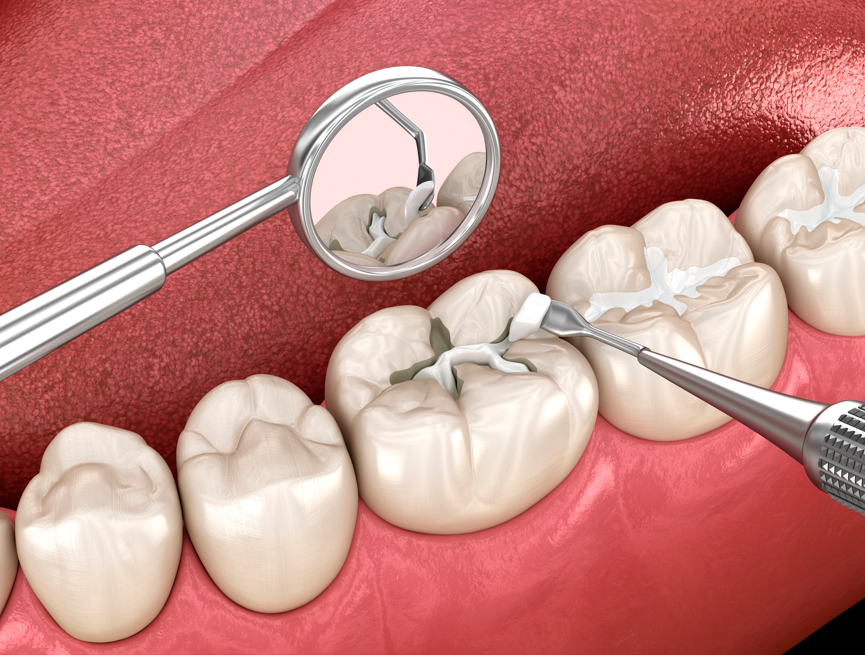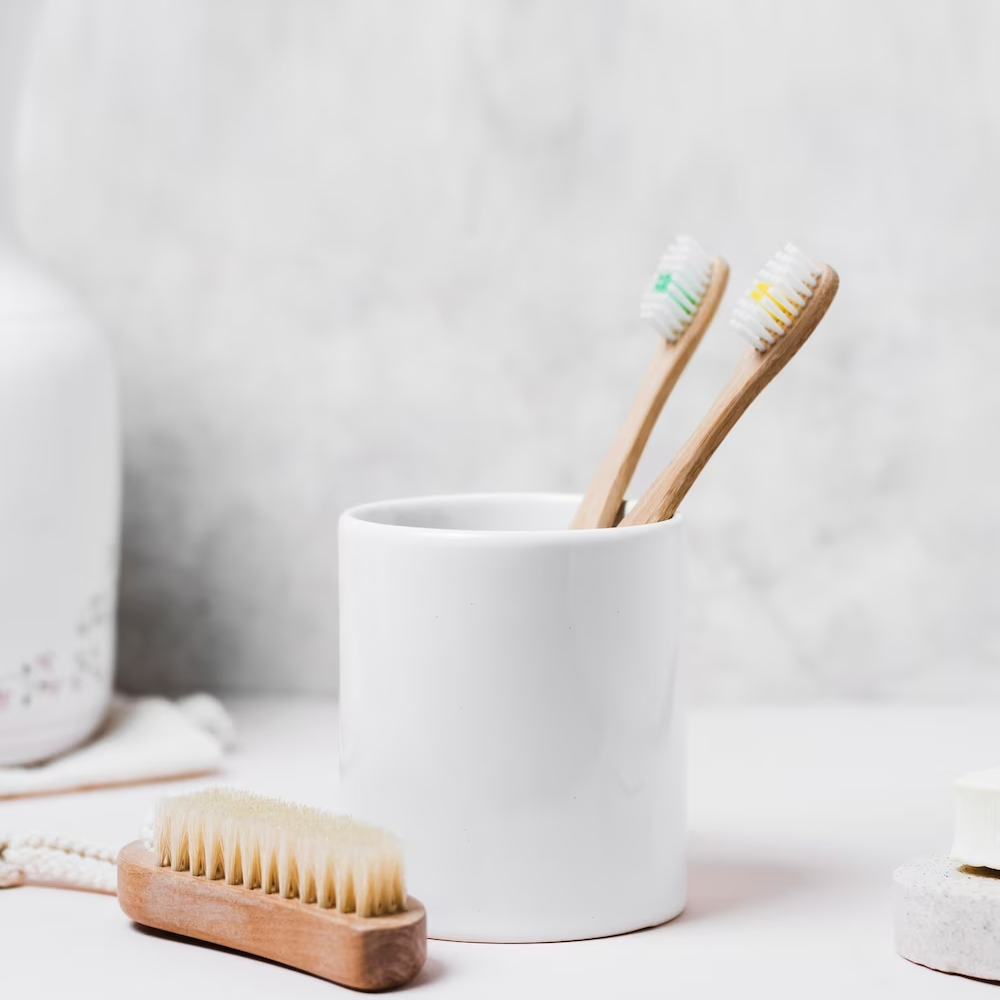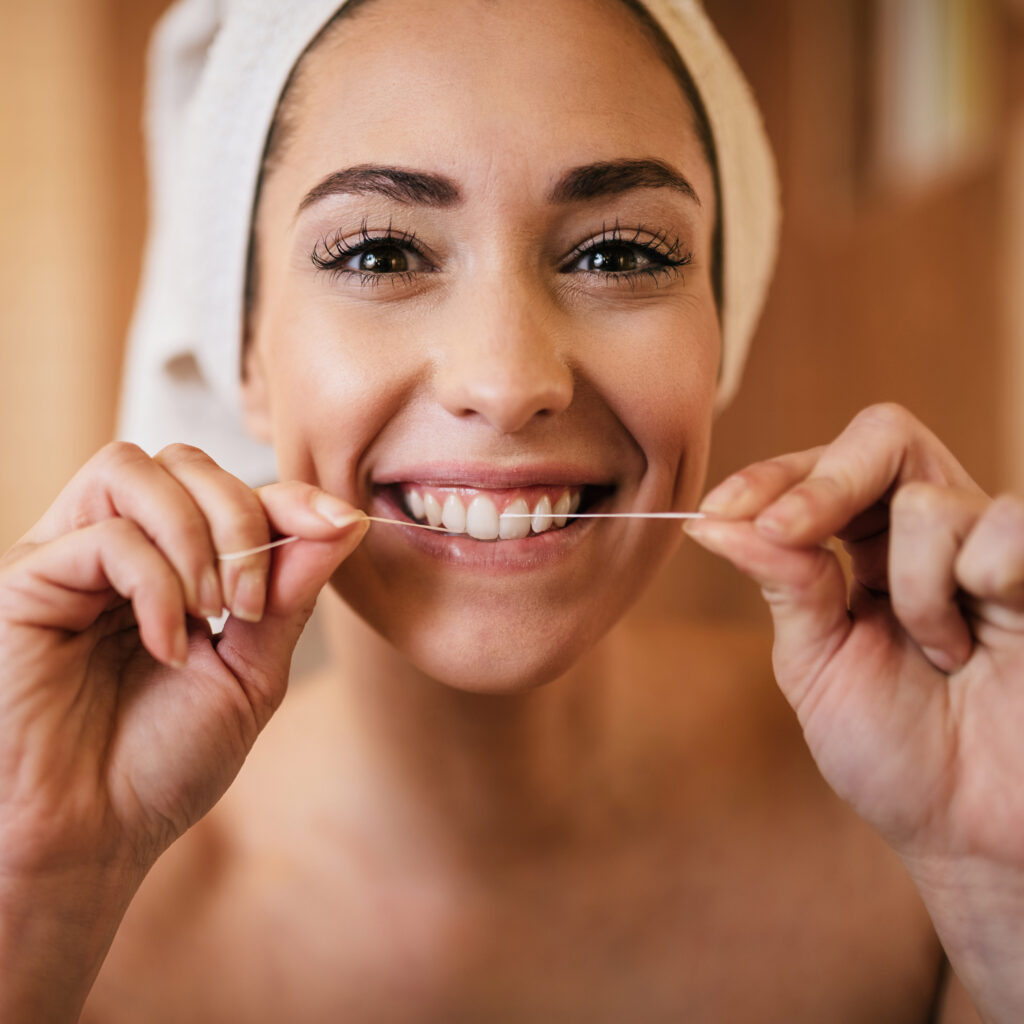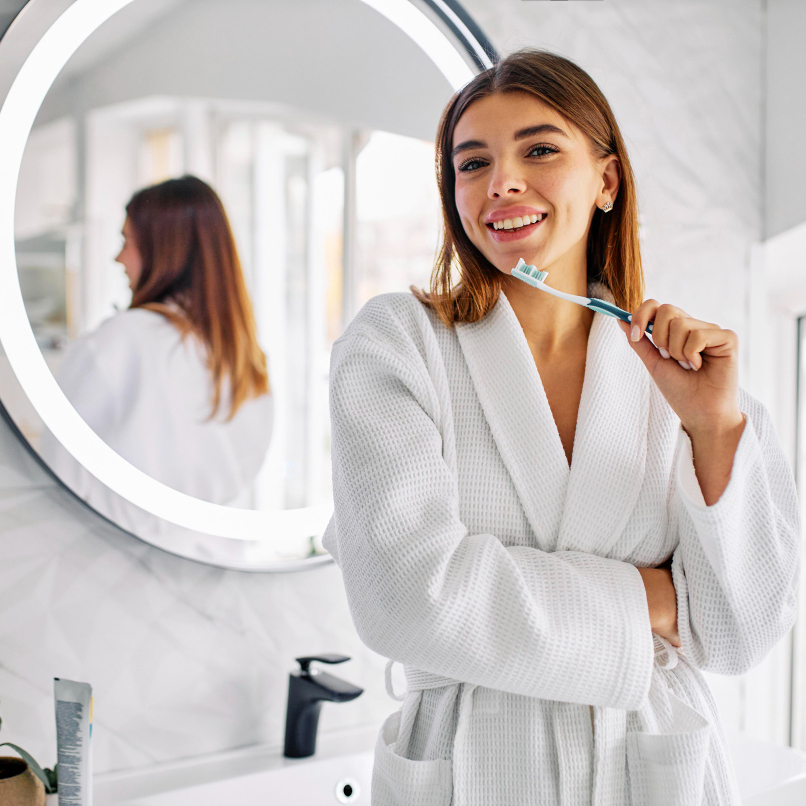Braces in Union City for Kids, Teens, and Adults

Straightening your teeth goes beyond achieving a beautiful smile. It’s a step toward better oral health and increased confidence. Whether it’s for your child, teenager, or yourself, getting braces in Union City can significantly improve your overall dental health and self-esteem. With modern advancements, braces are more comfortable and effective than ever, making orthodontic treatment accessible for all ages. In this blog, we’ll explore the benefits of braces in Union City, the available options, and how to get started on your journey toward a healthier, straighter smile with the best dentists in Union City. The Importance of Braces for a Healthier Smile Braces help correct a variety of dental issues, including misaligned teeth, overcrowding, and improper bites. These issues, if left untreated, can lead to problems such as tooth decay, gum disease, and difficulty chewing. Braces in Union City don’t just enhance your appearance—they improve your oral health and functionality. Regardless of your age, braces can bring lasting benefits. With options available for kids, teens, and adults, there’s never a bad time to improve your smile. Working with experienced dentists to ensures you receive the right treatment plan tailored to your needs. Looking for Braces in Union City? When you choose Dream Smile Dental, you’re choosing personalized care and advanced treatment options. We’re committed to creating a positive and supportive experience for every patient, no matter their age. Our team of professional dentists in Union City is dedicated to helping you achieve a healthier, straighter smile with a treatment plan that suits your lifestyle. Here’s what sets us apart: Comprehensive Options: From traditional braces to Invisalign, we offer a wide range of solutions. Family-Friendly Atmosphere: We provide a welcoming environment for kids, teens, and adults alike. Expertise and Experience: Our skilled team of dentists in Union City is dedicated to delivering exceptional orthodontic care. Flexible Payment Plans: We believe everyone deserves a healthy smile, so we offer affordable options to fit your budget. Braces for Kids: Early Treatment for a Healthier Smile When Should Kids Start Orthodontic Treatment? The American Association of Orthodontists recommends that children have their first orthodontic evaluation around age seven. At this age, any potential issues can be identified, even if treatment isn’t immediately necessary. Getting a jumpstart on early evaluation with the right dentists in Union City can prevent bigger issues in the future. Common Dental Issues in Kids Children may face dental challenges such as: Crowding of teeth Misaligned bites (overbites, under bites, cross bites) Jaw growth discrepancies Habits like thumb-sucking causing alignment problems Why Early Treatment Matters By addressing orthodontic issues early, we can guide the development of your child’s jaw and teeth. Early intervention often reduces the need for more extensive treatment in the future and ensures a healthy foundation for permanent teeth. Our team ensures that early treatment is as comfortable and stress-free as possible for your child. Achieve a Perfect Smile and Confidence with Teen Braces Why Braces Are Common During the Teen Years The teenage years are ideal for orthodontic treatment because most, if not all, permanent teeth have erupted. It’s also a time when correcting dental issues can have a lasting impact on confidence and oral health. With the help of the best dentists in Union City, teens can enjoy a seamless and effective treatment experience. Treatment Options for Teens Teens have access to a variety of braces, including: Metal Braces: Durable and effective, with customizable colored bands for a personal touch. Clear Braces: Less noticeable than traditional metal braces, blending naturally with teeth. Invisalign Teen: Clear aligners that are nearly invisible and removable for eating, brushing, and special occasions. Supporting Teens Through Their Orthodontic Journey We understand that teens may feel self-conscious about braces. That’s why we provide personalized care, helping them feel confident and excited about their journey toward a straighter smile. With the expertise of our dentists in Union City, teens can feel empowered and supported throughout their orthodontic treatment. Dental Braces for Adults: It’s Never Too Late Why Adults Choose Braces More adults than ever are seeking orthodontic treatment, whether to correct long-standing issues or address changes like teeth shifting over time. Braces can improve oral health, relieve discomfort from bite issues, and boost self-confidence. The misconception that braces are only for children and teens is gone; more adults are now achieving the smile they’ve always wanted thanks to braces in Union City. Discreet Treatment Options for Adults We offer subtle solutions for adults who want effective yet discreet treatments: Ceramic Braces: Aesthetic options that blend in with your teeth. Invisalign: Removable aligners that fit seamlessly into your daily life. Lingual Braces: Hidden behind your teeth for ultimate discretion. Benefits of Orthodontic Treatment in Adulthood Easier cleaning and better oral hygiene Relief from jaw pain or discomfort caused by bite misalignment A smile you’ll feel proud to show It’s never too late to invest in your smile, and we’re here to make the process smooth and rewarding. With guidance from our skilled dentists in Union City, adults can confidently transform their smile and improve their oral health. The Journey to a Straighter Smile Step 1: Consultation Your journey begins with a comprehensive orthodontic evaluation. Our dentists in Union City will take X-rays, photographs, and impressions to assess your dental health and determine the best treatment plan. Step 2: Personalized Treatment Plan Every smile is unique, and we customize our approach based on your specific needs. Whether it’s for your child, teen, or adult treatment, we ensure the plan is tailored to meet your goals. Step 3: Fitting Braces or Aligners Once your plan is in place, we’ll fit your braces or provide your first set of aligners. Our team will walk you through proper care and maintenance to ensure successful results. Step 4: Regular Checkups Throughout your treatment, we’ll schedule regular checkups to make adjustments and monitor your progress. These visits are essential for achieving the best possible outcome and helping you maintain a healthy, beautiful smile. Step 5: Post-Treatment Care After your
Why You Need an Experienced Orthodontist in Union City

A beautiful smile is not just about aesthetics; it plays a crucial role in our self-esteem and overall oral health. When considering orthodontic treatment, it’s essential to seek the expertise of an experienced orthodontist. We believe that a confident smile is essential for both self-esteem and overall well-being. Whether you’re looking to straighten your teeth, improve your bite, or simply enhance your oral health, choosing an experienced orthodontist in Union City is crucial for achieving the best results. With our advanced technology, personalized treatment plans, and compassionate care, we are dedicated to guiding you on your journey toward a healthier, more radiant smile. The Importance of an Experienced Orthodontist Choosing an experienced orthodontist is essential for achieving a healthy and confident smile understand the significant role an experienced orthodontist plays in diagnosing and treating various dental issues. From simple misalignments to more complex cases involving jaw discrepancies, our skilled professionals are equipped to handle a wide range of concerns. Expertise and Personalized Care An experienced orthodontist brings a wealth of knowledge and expertise to the table. They assess your individual needs and create a tailored treatment plan to ensure the best possible outcome. Whether you require traditional braces or modern solutions like Invisalign, personalized care is a key component of successful orthodontic treatment. Advanced Technology Here, we utilize state-of-the-art technology, including 3D imaging and digital planning, to enhance the accuracy and effectiveness of our treatments. These tools allow for precise diagnosis and customized treatment, ensuring optimal results for every patient. Functional and Aesthetic Benefits Beyond just aesthetics, an experienced orthodontist improves the functionality of your smile. Misalignments and bite issues can lead to discomfort, difficulty chewing, and even jaw pain. Our goal is to address these concerns while creating a balanced, beautiful smile. Comfort and Support Choosing the right orthodontist ensures a comfortable and stress-free treatment journey. We provide compassionate care and support throughout your entire orthodontic experience, ensuring you feel confident every step of the way. Benefits of Choosing an Experienced Orthodontist Selecting an experienced orthodontist in Union City offers a multitude of benefits that contribute to a successful orthodontic experience. We prioritize your comfort, convenience, and long-term oral health. Here are some key advantages of working with us: Personalized Treatment Plans: Every patient’s smile is unique, and our orthodontists create customized treatment plans to meet your specific goals. Advanced Technology: We utilize state-of-the-art tools like 3D imaging, digital scanning, and computer-assisted planning to provide accurate and efficient care. Comfortable Care: Our gentle approach ensures a comfortable experience from your initial consultation to the completion of treatment. Exceptional Results: With years of expertise and thousands of satisfied patients, we consistently deliver outstanding results. Top Treatments by Dream Smile Dental’s Orthodontists At Dream Smile Dental, we provide a variety of advanced orthodontic treatments designed to meet the unique needs of each patient. Whether you’re looking to straighten your teeth, correct bite issues, or improve overall oral health, our experienced orthodontists in Union City, offers effective and personalized solutions. Traditional Braces Traditional braces are one of the most common and effective methods for straightening teeth. They consist of metal brackets and wires that apply gentle pressure to gradually move teeth into their desired positions. Our orthodontists customize each treatment plan to ensure the best possible results, taking into account your specific needs and preferences. Invisalign Treatment As an experienced Invisalign dentist in Union City, we specialize in providing clear aligners that are virtually invisible and offer a more discreet way to straighten teeth. Invisalign aligners are custom-made for a perfect fit and gently guide your teeth into the desired positions. This treatment is ideal for patients looking for a more flexible, comfortable, and convenient solution compared to traditional braces. Clear Braces Clear braces offer the same effectiveness as traditional braces but with the added benefit of a more subtle appearance. Made with ceramic brackets and tooth-colored wires, these braces are designed to blend in with your natural teeth, making them a popular choice for those seeking a less noticeable orthodontic option. Retainers After completing active orthodontic treatment, retainers play a crucial role in maintaining the results. Whether you’ve had braces or Invisalign, retainers help stabilize your teeth and prevent them from shifting over time. Our team ensures that retainers are comfortable and perfectly fitted for long-term success. Early Orthodontic Treatment Early intervention is essential for guiding children’s developing teeth and jaws into proper alignment. Our experienced orthodontistsin Union City , offers early orthodontic treatment to address issues like overcrowding, spacing, and bite problems, helping children achieve a healthy and balanced smile. We are dedicated to providing the highest level of care and offering a wide range of treatments to suit every patient’s needs. Signs You May Need an Orthodontist Recognizing when to visit an experienced orthodontist is crucial for addressing dental concerns early. Here are some common signs that you may need orthodontic treatment: Crooked or overcrowded teeth Jaw discomfort or difficulty in chewing Misaligned bite (overbite, underbite, crossbite) Difficulty speaking clearly or a lisp Difficulty maintaining proper oral hygiene If you experience any of these symptoms, scheduling a consultation with an experienced orthodontist in Union City can help determine the most effective treatment option for you. Common Orthodontic Issues Treated by Experienced Orthodontists Experienced orthodontists can effectively address a wide range of dental issues. At Dream Smile Dental, our experienced orthodontists specialize in treating a wide range of dental issues to ensure optimal oral health and functionality. Some of the most common concerns we address include: Crowded Teeth: Overlapping teeth can lead to difficulty cleaning and increased risk of cavities and gum disease. We work to create enough space for proper alignment and a healthier smile. Overbite/Underbite: Misalignment between the upper and lower jaws can affect chewing, speaking, and even jaw pain. Our team helps correct these issues for improved functionality. Open Bite: When front teeth do not touch, it can impact speech and lead to discomfort. We focus on creating a balanced bite that restores normal function. Crossbite:
Dental Sealants in Union City: Protect Your Teeth from Cavities

Dental sealants contribute significantly to protecting teeth from decay. Especially effective for children and teenagers, these thin plastic coatings are applied to the chewing surfaces of molars, where most cavities form. The reason molars are so vulnerable is due to their deep grooves, which make them harder to clean thoroughly with brushing and flossing alone. Dental sealants are a protective measure that fills in these grooves, blocking out food particles and bacteria that could cause cavities. For families in Union City looking to safeguard their children’s teeth, sealants offer a straightforward, preventive solution. Simple But Effective Sealants are often described as a barrier for your teeth, but how do they actually function? After a tooth is cleaned, a dentist applies sealant material directly to the surface. This material bonds to the pits and fissures of the tooth, quickly hardening to form a smooth surface. This smooth layer acts as a shield, preventing food and bacteria from settling into the natural crevices of your molars, where cavities commonly form. It’s important to note that sealants don’t replace good oral hygiene but work alongside regular brushing and flossing to provide comprehensive protection. While many associate sealants as offered by pediatric dentist Union City, they’re not limited to children. Adults with cavity-prone teeth, particularly those with deep grooves, can also benefit from this extra layer of defense. When Are Dental Sealants Needed? Ideally, dental sealants should be applied soon after a child’s permanent molars emerge, usually around the ages 6 to 12. At this stage, their teeth are most susceptible to decay since their brushing skills may still be developing. Applying sealants early provides protection during these vulnerable years when the risk of cavities is highest. However, it’s not just about timing for kids. Adults who struggle with cavities despite diligent oral care might find that sealants offer the extra protection they need. Even if you’ve never had sealants applied as a child, it’s never too late to consider them for preventing future dental issues. Quick and Painless Application Many patients are relieved to discover that getting dental sealants Union City is a painless, non-invasive procedure. The process is straightforward: after a thorough cleaning, the tooth is dried and a special gel is applied to slightly roughen the surface, allowing the sealant to bond properly. After rinsing the gel off, the sealant material is painted onto the tooth and cured using a special light to harden it. In just a few minutes, the tooth is protected from future decay. There’s no need for anesthesia, drilling, or any discomfort. This ease makes it an excellent option for both children and adults who want to strengthen their defenses against cavities without the need for invasive dental work. Beyond Cavity Prevention While dental sealants are primarily used to prevent cavities, the benefits extend further. Sealants can save families time, money, and stress by reducing the likelihood of needing more extensive dental procedures like fillings, crowns, or even root canals. By protecting the teeth now, you avoid costly treatments down the road. Sealants are a cost-effective measure in preventive dentistry. For children, sealants can also improve their comfort and confidence. Kids who develop cavities often face anxiety about dental visits, but by reducing the likelihood of decay, sealants can make dental checkups a more positive experience. Additionally, fewer cavities mean less time in the dentist’s chair, which parents and kids alike can appreciate. Common Misconceptions Despite their effectiveness, some misconceptions about dental sealants persist. One of the most common myths is that they can only be used for children. While it’s true that sealants are often applied to children’s teeth, adults who have not developed cavities in their molars or who struggle with cleaning deep tooth grooves are also ideal candidates for sealants. Another misconception is that sealants can cause harm by trapping bacteria underneath. In reality, sealants are applied to clean, plaque-free teeth, and any residual bacteria are minimal and unlikely to cause decay once the tooth is sealed off from food and sugars. Some patients are also concerned about the safety of the materials used in sealants, fearing that they may contain harmful chemicals. The good news is that dental sealants are made from safe, durable materials that have been thoroughly tested for safety. Dentists in Union City use high-quality sealants that are free from BPA, making sure both children and adults can benefit from this protective treatment without concerns. How Long Do Sealants Last? Dental sealants last several years before reapplication. For children, this means that sealants applied during early adolescence can continue to protect teeth well into their teenage years. Sealants are durable enough to withstand the pressures of daily chewing, and regular dental checkups will allow your dentist to monitor their condition. If a sealant does wear down or chip over time, reapplying it is a quick and easy process. Maintaining proper oral hygiene will help prolong the effectiveness of sealants. Brushing twice a day, flossing regularly, and visiting your dentist for routine checkups are essential in ensuring your teeth and sealants stay in top shape. Comprehensive Preventive Care: Sealants In Union City, dental practices emphasize a comprehensive approach to oral health, and sealants are just one component of that strategy. Combining sealants with regular cleanings, fluoride treatments, and good at-home oral hygiene habits can dramatically reduce the risk of cavities. Sealants are particularly valuable because they target the areas most prone to decay — the deep grooves of the molars — which are otherwise hard to keep clean. For parents, sealants offer peace of mind that their children’s teeth have an added layer of protection during the years when they’re most vulnerable to cavities. For adults, it’s a chance to reduce the need for more invasive dental treatments in the future. Protect Your Smile with Dental Sealants Dental sealants are an easy and effective way to protect teeth from cavities, offering both short- and long-term benefits. Whether you’re seeking preventive care for your child or looking for extra protection for
Results of Professional Teeth Whitening: How Soon Can You Expect to See a Difference?

Professional teeth whitening is a popular cosmetic dental procedure that can significantly brighten your smile. Many patients in Union City who seek out this treatment often wonder how quickly they can expect to see results. Understanding the whitening process and what factors influence the outcome can help set realistic expectations. What is Professional Teeth Whitening? Professional teeth whitening performed by a teeth whitening dentist involves the use of high-concentration bleaching agents that are not available over the counter. These treatments are applied under carefully controlled conditions which allow for safe, effective, and speedy color improvement. Unlike at-home kits, professional whitening takes advantage of advanced techniques like laser whitening or custom tray-based systems. Immediate Results One of the biggest advantages of professional teeth whitening treatments at a teeth whitening clinic is the immediacy of the results. In most cases, patients can see noticeable whitening after just one session. Depending on the technique used, such as laser whitening, the results can be seen in as little as one hour. This is significantly quicker than at-home kits or strips, which can take several weeks to show similar results. Factors Affecting Whitening Speed Several factors can influence how quickly you see results from professional teeth whitening. The degree of staining or discoloration initially present plays a significant role; for instance, teeth with yellow tones typically lighten quicker than those with grayish hues. The concentration of the whitening gel and the type of system used also affect the outcome and duration of the results. Moreover, individual lifestyle choices, such as smoking and consumption of staining substances like coffee and red wine, can influence the speed and effectiveness of the whitening process, as well as how uniformly the teeth respond to the treatment. How many Sessions Are Needed? While many patients experience dramatic improvements from just one treatment, some may need additional sessions to achieve their desired whiteness. This is especially true for those with severe stains or discoloration. Your dentist in Union City will tailor the whitening plan based on your specific needs and desired outcomes, which might include follow-up sessions scheduled a few weeks apart. Longevity of Whitening Results The longevity of teeth whitening results varies by individual but generally lasts from six months to two years, depending on dietary habits, oral hygiene, and tobacco use. To extend the whiteness, avoid staining foods and beverages, and consider using a whitening toothpaste or occasional touch-up treatments. Additionally, regular dental visits for professional cleanings and following your dentist’s care recommendations can significantly prolong the effects of the whitening treatment, keeping your smile brighter for a longer period. Maintaining Your Bright Smile After Treatment To keep your teeth looking their best after a professional whitening treatment, it’s important to follow a maintenance routine. This includes avoiding foods and drinks known to stain teeth, such as coffee, red wine, and dark berries, immediately after treatment. Additionally, smoking should be avoided as it can quickly yellow the teeth. Regular dental cleanings and the use of whitening toothpaste can also help maintain the effects of the treatment. For those who want to ensure their smile stays bright, consider periodic touch-up treatments as recommended by your teeth whitening dentist in Union City. Conclusion Professional teeth whitening offers a quick and effective way to enhance your smile. Most patients in Union City will notice significant changes after just one session, making it a preferred option for those looking for immediate improvements. Consult with a teeth whitening dentist to understand more about what to expect and how to maintain your brighter smile long-term.
Fluoride and Decay Prevention

Many years ago scientists started to notice that children who were born and raised in areas with natural fluoride in drinking water had fewer cavities than children in other areas. Fluoride absorbed by your body when teeth were forming (during mother’s pregnancy to early childhood) integrates into the structure of enamel and makes it stronger. After teeth eruption, fluoride found in your toothpaste, mouthwash, or in what your dentist places on your teeth still has a positive effect on your teeth. It strengthens the enamel and reduces the chance of tooth decay. If you have children and live in an area that has no fluoride in its drinking water, you should consult your dentist and physician about fluoride tablets that are available for children. If you have any questions about Fluoride treatment and you live in Union City or surrounding area, give us a call today!
Dental Health and Your Diet

Sugar is the main cause of dental decay when bacteria are present. However, the frequency of your sugar consumption is more significant than the amount of sugar you eat. Probably the worst thing you can do to your teeth is to drink a soda and have a sip every few minutes over a long period of time; the same is true for snacking. It is recommended that if you want to have a snack, soda, or juice, it is better to have it after food, as dessert, or have it in one sitting. Eating or drinking something sweet over an extended period of time creates a constant supply of sugar for bacteria that causes tooth decay! It is important to be aware of all the possible sources of sugar out there. It is not just everything that is sweet, but anything that can turn to sugar, like pieces of bread. Cutting down your sugar intake is good for cavity prevention, as well as your general health. But what about when you have to have sugar? The best way to avoid cavities is to prevent the sugar from staying next to your teeth. Brushing after eating sugar, rinsing your mouth with Fluoride mouth wash, or chewing sugarless gum can help. However, nothing has the effect of avoiding sugar! Is there any kind of food that prevents tooth decay? Well, not really. Some people believe that chewing foods like apples and carrots may have some plaque removal effects, but they still contain some sugar, so any advantage is not clear. Another group of food that causes significant damage to teeth structure is acidic food. If in frequent contact with teeth, things like limes, lemons, and grapefruits can cause serious irreversible damage (erosion) to your teeth. If you live in or around Union City, don’t hesitate to call us with your oral health questions.
Bad Breath

There are a few different causes of bad breath. Ranging from stomach problems to diet and teeth problems, most of the causes can be found in the mouth. They are: Tongue (when bacteria grows in between the papilla) Teeth cavities (especially when food particles get stuck in them) Gum diseases Extraction sites during healing Dentures when not cleaned properly Alcohol and tobacco If you or someone you know is concerned about bad breath, the first step is a dental check up. Your dentist will be able to confirm or rule out the source of the bad breath. When the cause is found, treatment will be determined and explained by your dentist. If the source of the bad breath is your mouth, there is little chance that mouth washes or mints can treat the problem. They usually mask the problem for a short period of time, and can sometimes exacerbate the situation (mouthwashes that contain alcohol cause dry mouth and usually make the bad breath worse). These are a few other, non-dental reasons that cause bad breath: Sore throat Tonsillitis Some food Infection of air passages Following a good oral hygiene routine and receiving regular dental check ups are the best ways to prevent bad breath. If you live in or around Union City, give us a call today to schedule an appointment and get rid of bad breath forever!
Electric vs Manual Brushes

here have been multiple studies comparing the effectiveness of manual brushes and electric brushes. Although not all electric brushes are the same, these studies conclude that, in general, electric brushes are more efficient in controlling plaque than manual brushes. Theoretically, you can do a very good brushing with a regular hand brush, but the movements of an electric brush make the task easier and more effective. Also, some electric brushes (Sonicare) produce sonic vibrations that are difficult to mimic with a hand brush! Other electric brushes like Oral-B and Rotadent have small heads that help you access hard-to-reach areas of your mouth. This aspect is more important when you are talking about someone with orthodontic braces or a history of gum disease. If you have any questions about electric toothbrushes and you live in Union City or the surrounding area, give us a call today!
How to Floss Your Teeth

The surfaces between teeth are not easily accessible by toothbrush; therefore, the best way to clean them is by flossing. The ideal frequency for flossing is like brushing: ideally after each meal, though one time a day (before going to bed) is the minimum necessary. To start, cut a piece of dental floss (approximately 2 feet). Wrap both sides of the floss around your middle fingers. Using your index and thumb, glide the floss in between all of your teeth one by one. When flossing, make sure you are not cutting your gums. The goal is to clean the teeth surfaces, not the gums. In the space in between the teeth, press the floss against each side of the tooth (hug the tooth) and gently move it back and forth and up and down. Then move to the opposite surface of the adjacent tooth. If you have any questions about flossing your teeth and you live in Union City or the surrounding area, give us a call today!
How to Brush Your Teeth

The first step is to choose a good toothbrush. You always want to use a soft brush with a small head. A soft brush is hard enough to remove plaque, yet gentle enough not to damage your teeth or gums The next issue is to select good toothpaste. In general, any toothpaste that contains Fluoride will do the job, unless you have special needs that are determined by your dentist. Two of the best brands of toothpaste are Colgate Total and Crest Multicare. The first rule of brushing is to start from a specific location and work your way to the opposite side, continuing all the way through the whole mouth so that you end where you started. This way you won’t miss any area. Usually a pea-sized amount of toothpaste is enough. An adequate brushing should take at least 2 minutes and preferably around 4 minutes. There are a variety of techniques for brushing your teeth, but one of the most popular ones is described here: Hold the brush at a 45 degree angle toward the teeth and gums. Gently press against the gums so the tips of the bristles go in between the gum and the teeth. Then apply a few lateral strokes and roll the brush down to sweep the plaque away from the teeth and the gum. Repeat this motion 6 to 10 times and move on to the next area of 2 to 3 teeth. If your mouth is full of foam, spit it out and continue brushing. Your brushing is completed when you have brushed all the surfaces of your teeth, not when your mouth is full! On chewing surfaces, short strokes work best to get the plaque out of the grooves and pits. When brushing the back side of your front teeth, hold your brush vertically to be able to reach the teeth better. As far as frequency of brushing is concerned, ideally you want to brush your teeth after each meal. But if you can’t, brush at least twice a day – after breakfast and before going to bed. If you live in or around Union City, give us a call today to schedule your oral health evaluation exam.
